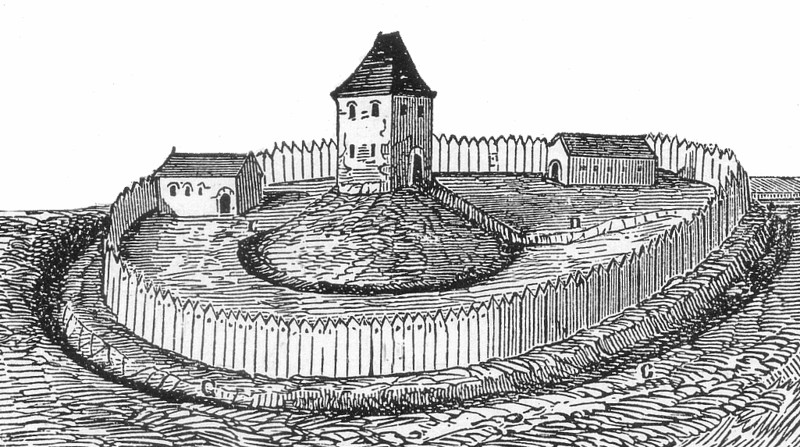
In 2005, philosopher Nicholas Shackel identified a form of argument in which an arguer claims to defend a controversial position while retreating, under pressure, to a more supportable one. He likened it to a medieval castle defense known as the motte and bailey, in which a stone tower, the motte, is surrounded by an area of open land, the bailey. If maurauders invade the bailey, the defender retreats to the motte, and when the attackers have given up he can reoccupy the bailey.
“For my purposes the desirable but only lightly defensible territory of the Motte and Bailey castle, that is to say, the Bailey, represents a philosophical doctrine or position with similar properties: desirable to its proponent but only lightly defensible,” Shackel wrote. “The Motte is the defensible but undesired position to which one retreats when hard pressed.”
By withdrawing as needed to a better-supported claim, a skilled arguer can pretend greater security than he’s established, and even accuse his critics of misrepresenting his position. Other writers have suggested that this is a common tactic in pseudoscience.
(Nicholas Shackel, “The Vacuity of Postmodernist Methodology,” Metaphilosophy 36:3 [April 2005], 295–320.)
